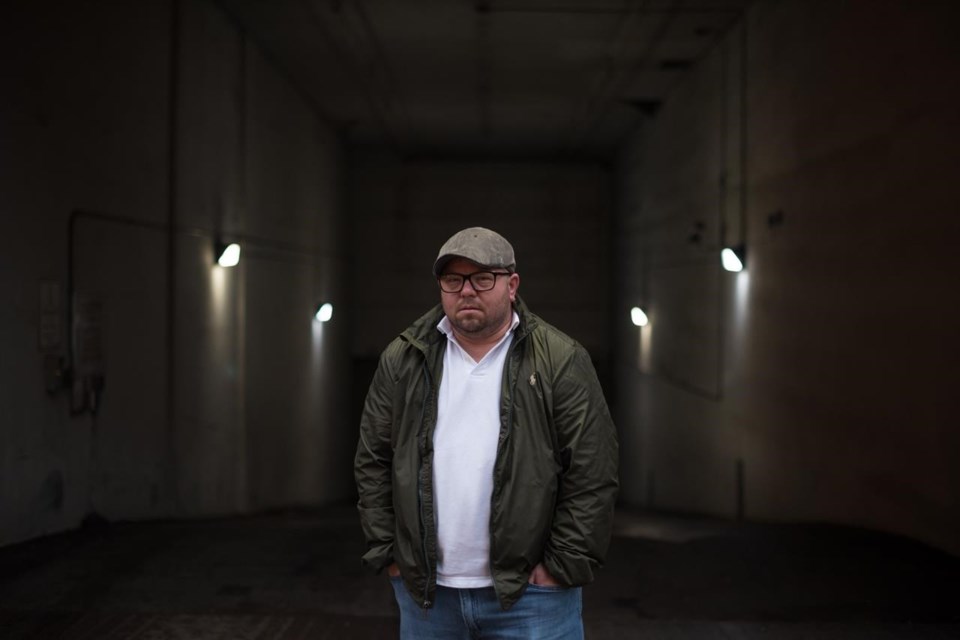ST. JOHN'S, N.L. — A Canadian was in Rome Thursday to deliver a lecture to religious scholars at a centuries-old university about clergy abuse and a proposed zero-tolerance policy that could help stop it.
Gemma Hickey, who uses the pronouns they and them, says their lecture at the Pontifical Gregorian University brings them one step closer to presenting the proposed regulations to Pope Francis, who they hope will adopt the policy into canonical law.
Current canonical law allows church officials known to have sexually abused children or vulnerable adults to remain in ministry, and the zero-tolerance policy would change that, Hickey said.
The proposal was drafted by lawyers and experts in church law for the Washington-based group Ending Clergy Abuse, of which Hickey is the board chair.
"If a priest rapes a child or a vulnerable adult, he still remains in his position. If a bishop covers up the abuse of a priest or their employees, he could still remain in his position or even get promoted," Hickey said in an interview. "Because canon law hasn't changed, that's why these people still remain on the altar."
Hickey said they were invited to speak at the Pontifical Gregorian University by Rev. Hans Zollner, who heads an academic institute at the school that trains church personnel in child protection strategies. He resigned last year from Pope Francis’s child protection advisory board, citing a host of problems inside the commission and in its relationship with the Vatican bureaucracy.
The university was founded in 1551 by Ignatius of Loyola, and its curriculum is accredited by the Holy See — the government of the Roman Catholic Church led by Pope Francis. Its graduates include canonized saints and more than a dozen popes.
The invitation to speak to future leaders of the Catholic Church underscores the growing support for the zero-tolerance policy among those with influence, Hickey said.
Their talk was about the policy's importance, but also about their own story as a survivor of clergy abuse and the way it has changed their home province of Newfoundland and Labrador.
Hickey called the province "Ground Zero" for clergy abuse in Canada, pointing to the former Mount Cashel orphanage in St. John's, where boys were physically and sexually abused by members of the Irish Christian Brothers for decades.
Though the building was demolished in 1992, the abuse carried out within its walls still causes pain today. A 2021 decision by the Supreme Court of Canada found the Archdiocese of St. John's liable for the abuse; in response, the archdiocese sold off dozens of churches across eastern Newfoundland to pay more than 360 survivors who have since come forward.
"So what happens is communities are torn apart, parishioners are pitted against survivors, and predators go unnamed," Hickey said. "We're just revisiting those wounds and we don't have a chance to heal."
Hickey noted there are plenty of recent allegations of abusive clergy members, from Arul Savari, a 48-year-old priest charged with inappropriately touching an eight-year-old girl in Manitoba, to Thomas Offong, a 49-year-old priest charged last month for sexually assaulting an adult in Newfoundland.
"This is not a thing of the past," Hickey said. "And the sad thing about all this is that the majority of abuse cases could have been prevented, had it been dealt with appropriately."
If Ending Clergy Abuse's zero-tolerance policy is made law, the church would be forced to deal with these cases appropriately and hold abusers to account, Hickey said.
They hope to return to Rome in June for a conference on safeguarding against clergy abuse, which will put them in contact with more academics, theologians and experts in canonical law to discuss and review the proposed policy.
"And hopefully, through having the academics behind us, and through doing some more work and getting more support and raising awareness around it, we will deliver it to the Pope," they said.
This report by The Canadian Press was first published Jan. 18, 2024.
— With files from The Associated Press.
Sarah Smellie, The Canadian Press




